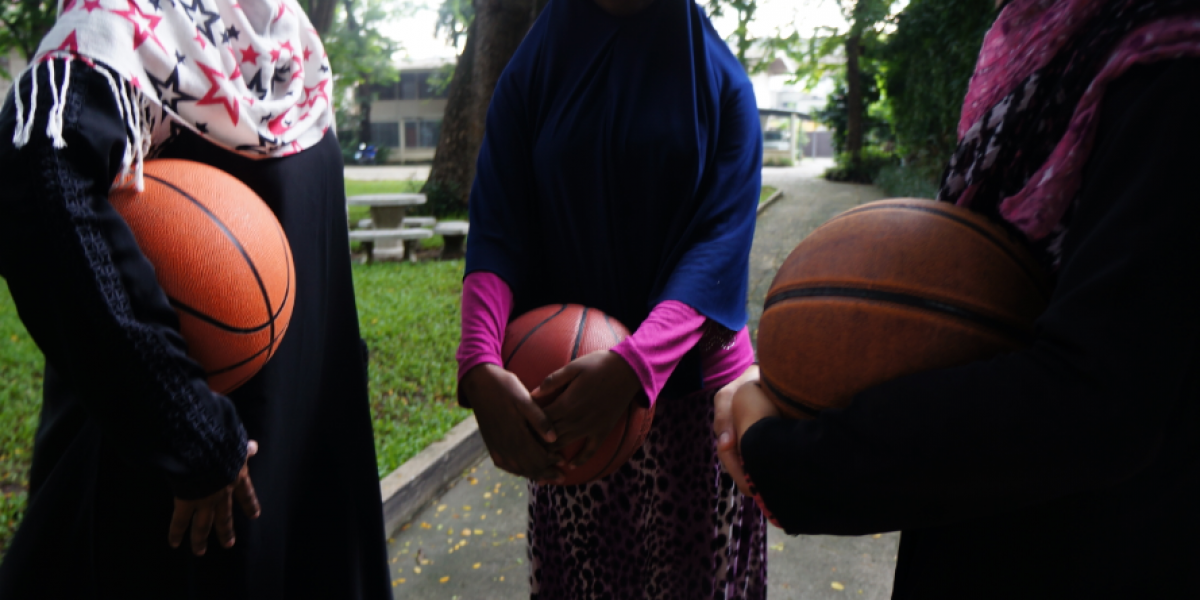Bangkok: Basketball and Accompaniment
16 October 2015|Jennifer Martin- Psychosocial Counselor of the Urban Refugee Program

I have been outside for five minutes, and my North American genes already have my face dripping with sweat, my heart depleted from a morning of trauma-focused counselling sessions.
Nine girls fidget in the humid Bangkok air that hangs heavy and humid. They stand silent looking at each other in a misshapen circle: five Somali girls on one side and four Pakistani girls on the other.
I ask, “Raise your hand if you have played basketball before?” Fadumo translates to Somali and Samavia translates to Urdu.
No one raises her hand. Silence.
But nervous smiles emerge as I tease them, saying sarcastically, “I came here with the understanding that you were all professional basketball players who have years and years and years of experience.”
After a few more introductions, we start from the beginning. This is a basketball court. This is dribbling. This is passing. Minutes later, the silence is broken.
The balls run from their hands as they learn to dribble. The balls slip through the girl’s fingers as they juggle to catch a pass.
We are running up and down the court laughing and gasping for breath. While not everyone speaks similar languages to one another, the playful and uncoordinated nature of trying something for the first time is universal.
A week later four new faces are in the circle, but three members are absent; they have been arrested and put into the Immigration Detention Center.
In Bangkok, Thai law does not distinguish between an asylum seeker and an illegal migrant. So, for now they are in detention. Their bail may be paid and they may be released. Or they may not.
We are playing in the shade of tall trees at our office, while they likely sit in a windowless, overcrowded room behind a barred door. We are snacking on biscuits and orange juice, while they will only eat rice and cucumber soup today.
This is what these girls risk every day when they leave their small apartments or even when they stay at home. They can be arrested at any point and put in detention. But they still come. They choose to ride the bus, sometimes for an hour or two before arriving, to our game to run, flail, and laugh, even though they risk forfeiting their freedom if they are caught. They choose to live rather than hide.
As a Somali girl leaves, she catches my eye, and says in broken English “Jennifer… today was… the most…fun.” I wipe the sweat from my eyes, full of hope and gratitude: hopeful that this activity can help her feel stronger to cope with her unjust circumstance, and grateful that I get to accompany such brave, dynamic, and strong young women.

